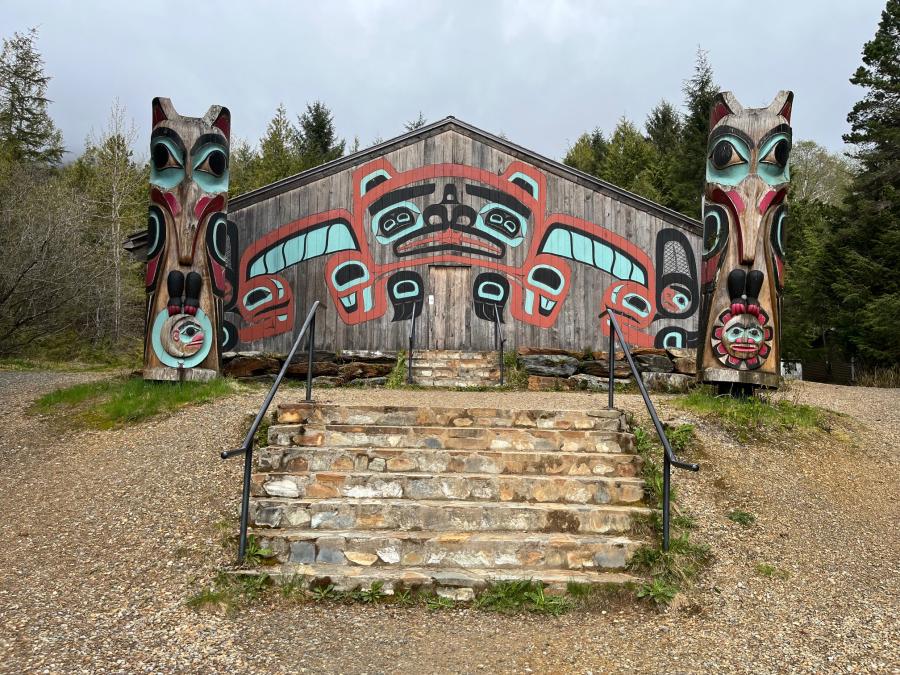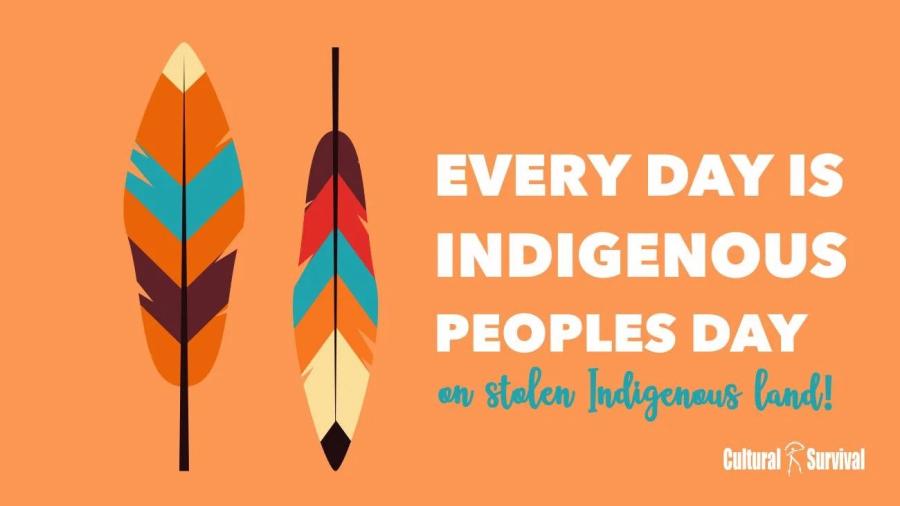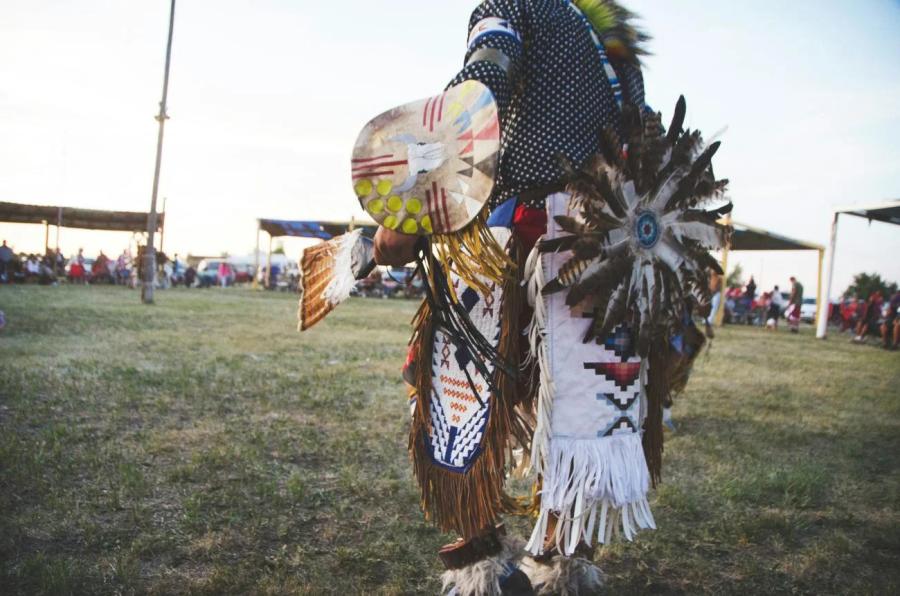Food does more than nourish our bodies. It lifts our spirits, nurtures our minds, and comforts our souls. As any weary traveler who has ever longed for a home-cooked meal can attest, food connects us to our families and communities by reminding us where we come from and—just for a moment—transports us back to a place of familiarity, trust, and comfort.
But in many Indigenous communities across North America, this pivotal aspect of both health and culture is slipping away. Knowledge of traditional agricultural techniques, food sources, and preparation has become increasingly scarce as the pressures of urbanization, poverty, and modern lifestyles push many individuals and communities towards processed and artificial foods. This phenomenon has caused more than the obvious health problems like diabetes and obesity; it has also hindered the ability of many communities to observe their religious and spiritual ceremonies and has driven a generational wedge between those community members who connect to traditional food and those who have never known its importance or pleasure. 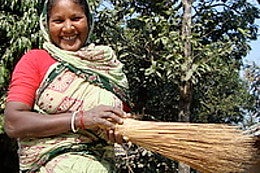 Few communities affected by this situation, however, are taking it as a given. Across the country, movements to restore traditional foods and agricultural practices—often called “food sovereignty” or “food security” movements—are cropping up with vehemence. But don’t let this narrow categorization fool you: food sovereignty movements are about far more than groceries. These movements are encouraging intergenerational connection, spurring physical activity, increasing political and economic autonomy, and helping to revitalize an integral aspect of culture.
Few communities affected by this situation, however, are taking it as a given. Across the country, movements to restore traditional foods and agricultural practices—often called “food sovereignty” or “food security” movements—are cropping up with vehemence. But don’t let this narrow categorization fool you: food sovereignty movements are about far more than groceries. These movements are encouraging intergenerational connection, spurring physical activity, increasing political and economic autonomy, and helping to revitalize an integral aspect of culture.
“Food sovereignty initiatives seem to be happening all over the place, and they have the potential to revitalize cultural lifeways in many aspects,” says Marcus Briggs-Cloud, a member of the Maskoke Nation who has taught Maskoke language to young people for many years. “For example, when you’re engaged in traditional agricultural practices, you’re teaching your children to live in accordance with the natural environment, from which the sacred is manifested. And it is from the sacred that we receive our good ways of living.”
One such organization working to foster its community’s relationship with the sacred, natural world through the use of traditional food sources and agricultural practices is the Mvskoke Food Sovereignty Initiative, based in Okmulgee, Oklahoma. (Different Mvskoke scholars and communities use different spellings for the name of the people. Variations include Maskoke, Muskogee, and Muscogee. Cultural Survival Quarterly tries to respect the usage preference of each individual or community quoted.) The initiative is a grassroots Native American-led organization that helps its community cultivate healthy, traditional foods in a sustainable, culturally relevant way. In addition to running a local farmer’s market and seed bank, the organization provides counseling to Mvskoke farmers and ranchers looking to pursue state and federal grants; partners with nearby communities to initiate and maintain community gardens and food donation projects; runs classes in traditional cooking and food preparation; and brings young people and elders together to share knowledge. 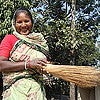 For Ben Yahola, the organization’s co-director, it was the high rates of nutrition-related illnesses, like diabetes, plaguing his community that prompted him to get involved with the movement. “Wisdom-keepers were dying at an early age,” he says. “Cultural survival is so important for the Mvskoke people. Elders must live long enough to share their knowledge with the youth.” In order to help his people live longer, healthier lives, Yahola started to encourage his peers to steer clear of foreign, processed foods, and opt instead for local, traditional alternatives. “The structure of our food system is being changed, and I believe this affects our bodies. But if you eat natural food, your mind, body, and spirit can be in tune.”
For Ben Yahola, the organization’s co-director, it was the high rates of nutrition-related illnesses, like diabetes, plaguing his community that prompted him to get involved with the movement. “Wisdom-keepers were dying at an early age,” he says. “Cultural survival is so important for the Mvskoke people. Elders must live long enough to share their knowledge with the youth.” In order to help his people live longer, healthier lives, Yahola started to encourage his peers to steer clear of foreign, processed foods, and opt instead for local, traditional alternatives. “The structure of our food system is being changed, and I believe this affects our bodies. But if you eat natural food, your mind, body, and spirit can be in tune.”
In addition to its impact on community health, the loss of traditional food sources and the knowledge related to them has made it harder to perform certain spiritual ceremonies. As Yahola points out, many traditional Mvskoke songs designed to connect hunters with food sources are disappearing. “We’re coming to lose the interpretation of the ceremonial songs that connected us to the fish, the buffalo, and the water.” Yahola is working with his community to revive these traditional songs, interweaving discussions of spirituality, ceremonial reverence, and cultural appreciation into agricultural lessons and food-related activities. Briggs-Cloud agrees with Yahola about the importance of traditional food in Mvskoke spiritual well-being. “Our spirituality and our food go hand in hand,” he contends.
For a small organization, the Mvskoke Food Sovereignty Initiative has had a significant impact. By placing an emphasis on a reciprocal
relationship with the land, the organization is teaching people to engage with their food, not simply consume it. Yahola believes one of the group’s greatest successes has been its ability to teach his community to appreciate the “importance of water, air, and other species. We’re encouraging people to work with nature, not challenge it.” Yahola admits, though, that the work, while fulfilling, is seldom easy, particularly where support from the federal government is concerned. “Sometimes our centralized government doesn’t fully see the skill level of the grassroots organizations in these rural areas. We need policy to give these communities empowerment over their own resources, their own food sovereignty.”
Both Yahola and Briggs-Cloud also say that that reaching younger generations can be a difficult task. Briggs-Cloud notes that many young people see programs like these as “anti-progression, a societal regression.” Yahola finds similar problems. “I struggle to get answers to the youth,” Yahola says.
Brett Ramey (Ioway) of Native Movement’s Urban Lifeways project shares their concern and has dedicated himself to promoting the concept of food sovereignty among Native youth in Flagstaff, Arizona. Having grown up in an urban environment himself, Ramey understands the pressures young Native Americans face to abandon their cultures. “Most of us went to public schools and have been taught that the world is separated into math, science, history, and art (if you’re lucky), which is contrary to our traditional teachings. So part of the underlying purpose of our work at Native Movement is to not only reclaim knowledge of how to grow food, but to also reclaim a worldview that acknowledges the inter-connectedness of everything in our world.” In addition to running farmers’ markets and planting gardens in vacant lots throughout the city, Ramey and the high school students he works with travel by bicycle to collect food waste from local restaurants to create their own organic fertilizers. In order to avoid falling into the “societal regression” trap Briggs-Cloud describes, Ramey works with young people to create modern, yet culturally relevant art around their gardens.
Organizations like the Mvskoke Food Sovereignty Initiative and Native Movement are not just changing the ways in which the people in their communities eat, they are changing the ways people in their communities live, think, and interact with one another. Janek, an 18-year-old Dineh who has been involved with the Urban Lifeways project for several years studying botany and agriculture, puts it best: “This work is getting us back to our roots, to our language, and our culture through the most basic thing there is: food.”
Nora Lawrence is a student at Amherst College and a Cultural Survival intern.
